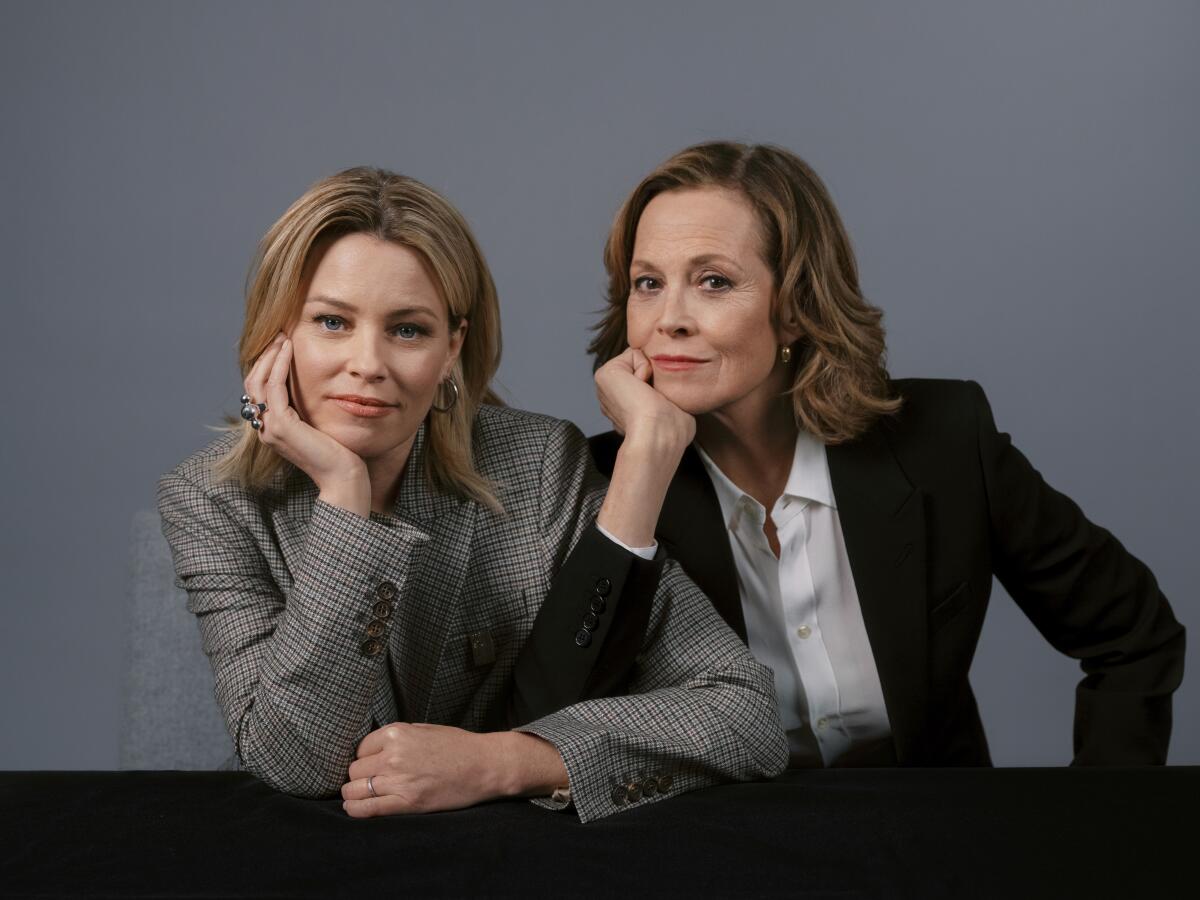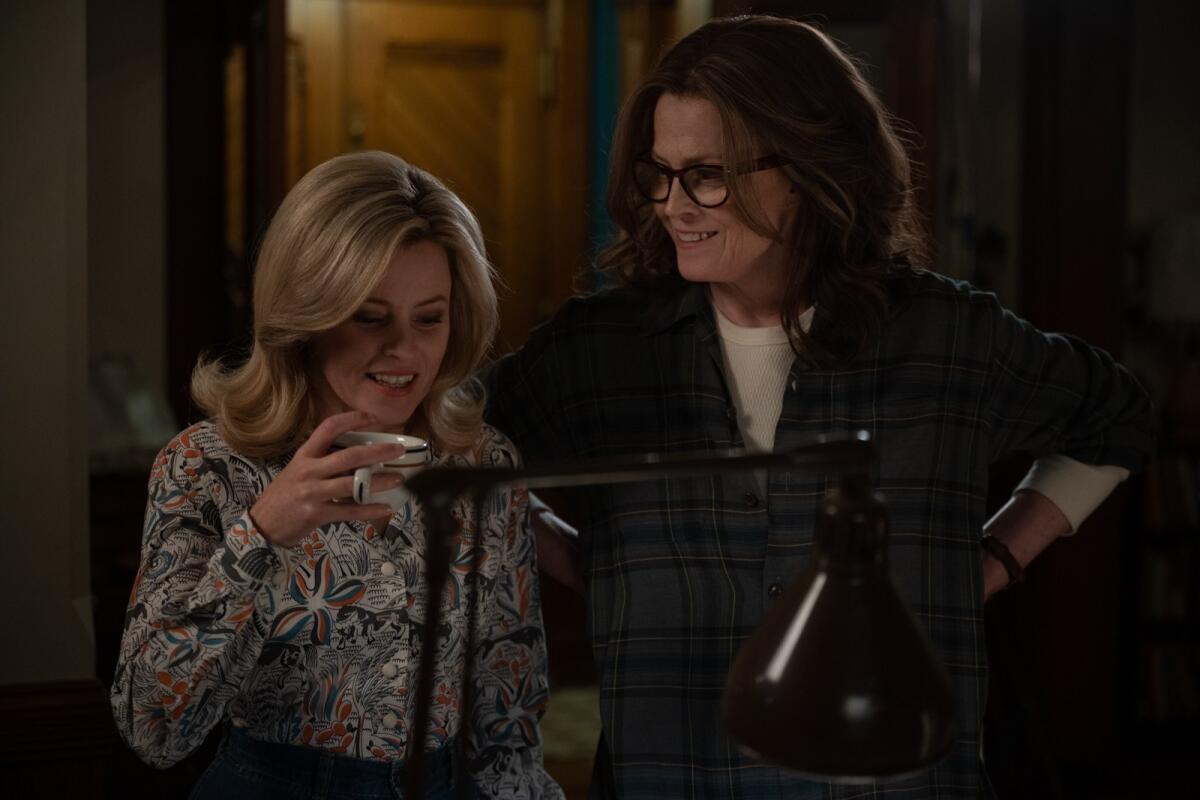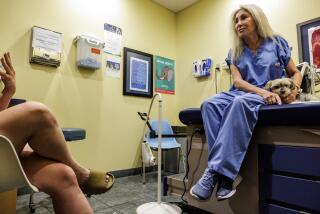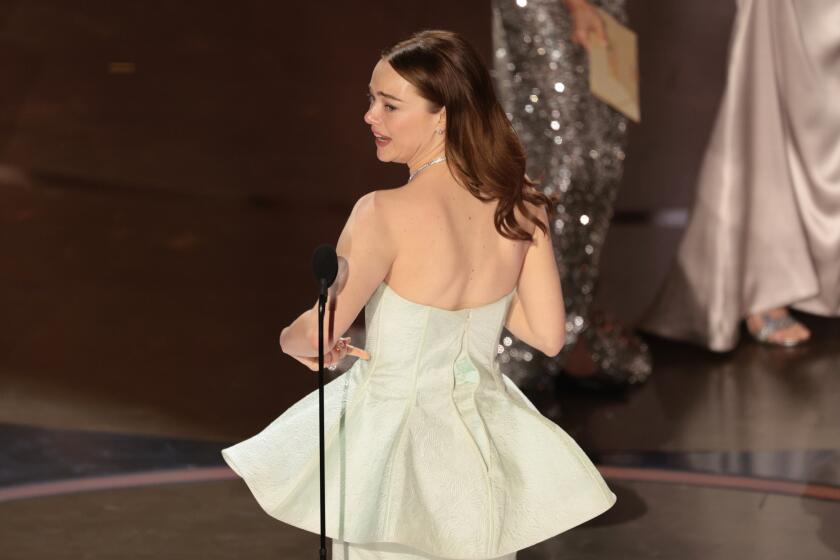Elizabeth Banks and Sigourney Weaver take a stand for reproductive rights

When Sigourney Weaver and Elizabeth Banks read the script for “Call Jane,” a period drama inspired by the Jane Collective, a group of real-life underground abortion providers, they both jumped at the chance to play women in different stages of their activism. But since the Supreme Court overturned the constitutional right to an abortion, the film began to resonate in a different way for them.
“It feels like it’s a great reminder of an era we are reentering, that we’re sort of going backwards instead of learning from our mistakes and going forward,” says Banks who stars as Joy, a suburban housewife who is radicalized when denied the ability to terminate her life-threatening pregnancy.
“It’s taken on a whole new urgency,” says Weaver, who appears as Virginia, the beating heart of the feminist crew. “[An abortion] is just reproductive healthcare, and they criminalize women for seeking the care they need.”
Were either of you familiar with the Jane Collective?
Elizabeth Banks: We didn’t know anything about them …
Sigourney Weaver: … But I was swept away by their commitment to each other and their respect for these women. The support and dignity they gave them during this procedure. Everything about the Janes was so inspiring. People were protesting a lot of things in the ‘70s. And it made sense to me that my character had gotten sidelined in the antiwar protests, because it was all men on the steps of City Hall, just speaking and speaking and speaking. I thought Virginia put all her unused energy into the Janes.
Banks: I loved the idea that we could honor these revolutionary women in Chicago. I felt like, “What a really interesting way to shed light on that time period.”

The movie’s timing can’t help but be tied to politics. But what other takeaways do you want people to have?
Weaver: I think we want to remind people to take it away from politics and encourage them that instead of judging women and demonizing them to feel empathy and care for the most at-risk in this procedure.
Banks: … which is a fairly normal one. There’s a mythology out there — and lies, frankly, especially to young women — that abortion can kill you. Which is just simply not true. It’s one of the safest medical procedures out there — safer than lots of dental procedures, safer than a colonoscopy. One in four women will have an abortion in their lifetime in America.
Both Joy and Virginia are fictional but based in fact, yes?
Banks: There were many women in the Janes. There wasn’t a single leader like Virginia, and there were obviously thousands and thousands of patients. About four women learned the procedure over time. But I couldn’t be prouder of the response from the actual Janes that are still alive today.
Which was?
Banks: We didn’t come in contact with a real Jane until the Sundance screening, which was meant to be in person but was forced to go virtual at the last minute. We were all on a Zoom afterwards for the Q&A and [Jane founder] Heather Booth was in the audience. And she got on the Zoom and said how honored she felt by the film, and that we’d done right by them. I wept. It’s all you can hope for when you’re trying to represent a feeling, an energy, a moment, a movement.
Weaver: This real sisterhood. I had their mug shots up. Some were very young women. It was like a family of women coming together to help other women. That they were performing the procedures themselves? I’m just so moved by what they did. It’s so brave — and they did it with such love. To me, that demonstrates once again that women can find consensus and work together. And it’s natural for us. We’re not caught up in any of that look-at-me bull—.
Back when you were making “Call Jane,” did either of you anticipate the Supreme Court’s landmark ruling?
Banks: Yes, and I’ll be honest, I was told by people that love me, “Oh, you’re being hysterical. They’ll never overturn Roe.” I don’t look so hysterical right now.
Weaver: Elizabeth was ahead of me in anticipating that.
Banks: The other thing I like to remind people is that abortion isn’t particularly controversial in American society. The majority of Americans want safe, legal abortions in this country for women as a backstop for whatever is going on in their lives. They know what their lived reality is. It’s that we have a lot of sex for fun, not just for making babies. We don’t want to have lifetime consequences for that fun. I also say to anybody who brings religion into it, that anytime we talk about it, I think forced religion, in any form is never about faith. It’s just about control. We live in a democracy, not a theocracy. Your God might not be my God.
Have there been antiabortion activists at any of the “Call Jane” events?
Banks: I was just saying this morning that I’m surprised that we don’t have more protesters. Maybe they’re just not really aware of it. We’re probably not in their algorithm.
Weaver: They probably go, “Oh, those liberal chicks. They’re always blathering on about something that’s nonsense.” But I’m hoping that people will just go out and see this film about women who believe that every woman should have as many children as she wants when she wants. That was the Janes ethos.
More to Read
From the Oscars to the Emmys.
Get the Envelope newsletter for exclusive awards season coverage, behind-the-scenes stories from the Envelope podcast and columnist Glenn Whipp’s must-read analysis.
You may occasionally receive promotional content from the Los Angeles Times.






